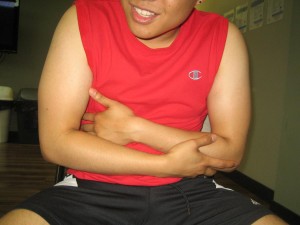Folliculitis is defined as inflammation or infection in one or several hair follicles. It is important to note that the hair follicles are miniature cavities surrounding the roots of the hair.
The condition can develop on skin where hair grows, including the scalp. It is likely to develop on the buttocks, thighs, armpits and neck which are areas where friction is common. It might manifest as small-sized bumps.
Folliculitis is typically caused by fungi or the staph bacteria. The condition is acquired after exposure to contaminated personal items such as soaps, towels or clothing. The individual can also be acquired at unclean spas or pools.
What are the indications?

Folliculitis causes the formation of small-sized crusty bumps on the skin. They might be red, yellow or white in color. The bumps can be accompanied by:
- Itchiness
- Soreness
- Drainage of pus
- Swelling
Management of folliculitis
Folliculitis is typically minor and settles on its own without requiring treatment. In case the skin irritation is accompanied by fever, spreading rash or foul and pus-filled bumps, seek medical care.
For an acute case of folliculitis that is severe or slowly heals, the doctor might suggest over-the-counter or prescription medications such as:
- Oral or topical antibiotics or antifungal drugs to deal with the cause of the infection
- NSAIDs or antihistamines to lessen the itchiness or pain
For a chronic case, it is difficult to manage. Antibiotics and other drugs might not clear up a chronic case. If other treatment options fail, laser hair removal might be suggested by the doctor.
What is the outlook?
Generally, most cases of folliculitis settle without treatment. It rarely results to serious issues.
